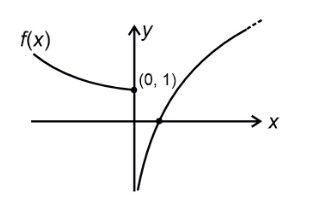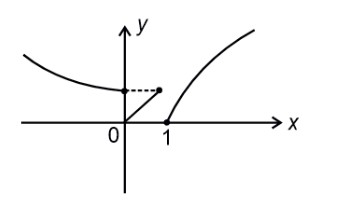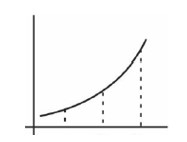In a geometric progression the ratio of the sum of the first 5 terms to the sum of their reciprocals is 49 and sum of the first and the third term is 35. The fifth term of the G.P. is p, the value of 4p is __________
In a geometric progression the ratio of the sum of the first 5 terms to the sum of their reciprocals is 49 and sum of the first and the third term is 35. The fifth term of the G.P. is p, the value of 4p is __________
Let five terms in G.P. be a/r², a/r, a, ar, ar²
Then, a (r? ² + r? ¹ + 1 + r + r²) / (1/a) (r? ² + r? ¹ + 1 + r? ¹ + r? ²) = 49
⇒ a² = 49 ⇒ a = ±7
Also, a/r² + a = 35
Therefore, a = -7 is not possible
Now, fifth term = ar² = a (7/28) = p ⇒ 4p = 7
Similar Questions for you
R1 = { (1, 1) (1, 2), (1, 3)., (1, 20), (2, 2), (2, 4). (2, 20), (3, 3), (3, 6), . (3, 18),
(4, 4), (4, 8), . (4, 20), (5, 5), (5, 10), (5, 15), (5, 20), (6, 6), (6, 12), (6, 18), (7. 7),
(7, 14), (8, 8), (8, 16), (9, 9), (9, 18), (10, 10), (10, 20), (11, 11), (12, 12)


⇒ (y, x) ∈ R V (x, y) ∈ R
(x, y) ∈ R ⇒ 2x = 3y and (y, x) ∈ R ⇒ 3x = 2y
Which holds only for (0, 0)
Which does not belongs to R.
∴ Value of n = 0
f is increasing function
x < 5x < 7x

f (x) < f (5x) < f (7x)
->
Given f (k) =
Case I : If x is even then g (x) = x . (i)
Case II : If x is odd then g (x + 1) = x + 1 . (ii)
From (i) & (ii), g (x) = x, when x is even
So total no. of functions = 105 × 1 = 105
Taking an Exam? Selecting a College?
Get authentic answers from experts, students and alumni that you won't find anywhere else.
On Shiksha, get access to
Learn more about...

Maths Ncert Solutions class 12th 2026
View Exam DetailsMost viewed information
SummaryDidn't find the answer you were looking for?
Search from Shiksha's 1 lakh+ Topics
Ask Current Students, Alumni & our Experts
Have a question related to your career & education?
See what others like you are asking & answering

